Blind Guardian - Discography (1988 - 2015) (Lossless)
|
|
| Описание: | |
| Audio codec / Аудио кодек: FLAC / APE Rip type / Тип рипа: image+.cue / Tracks+.cue Audio bitrate / Битрейт аудио: 805 - 1085 kbps Scans from the disc / Сканы с диска: Yes / Да  Compilation: Compilation:1996 - The Forgotten Tales (FLAC) 2012 - Memories Of A Time To Come (3 CD) (tracks+.cue) (FLAC)  EP / Live: EP / Live:2003 - Live (FLAC) 2010 - The Sacred Worlds and Songs Divine Tour (Live In Wacken) (APE) 2014 - Twilight Of The Gods (EP)  Full-Length Albums: Full-Length Albums:1988 - Battalions Of Fear (FLAC) 1989 - Follow The Blind (FLAC) 1990 - Tales From The Twilight World (FLAC) 1992 - Somewhere Far Beyond (FLAC) 1995 - Imaginations From The Other Side (FLAC) 1998 - Nightfall In Middle-Earth (FLAC) 2002 - A NIght At The Opera (FLAC) 2006 - A Twist In The Myth (FLAC) 2010 - At The Edge Of Time (Limited Edition) (APE) 2015 - Beyond The Red Mirror (Limited Edition) (FLAC)  Singles: Singles:1995 - A Past And Future Secret (FLAC) 1995 - Bright Eyes (Japan) (FLAC) 1996 - Mr .Sandman (FLAC) 1998 - Mirror, Mirror (FLAC) 2001 - And Then There Was Silence (Japan) (FLAC) 2003 - The Bard's Song - In The Forest (Collaboration) (FLAC) 2006 - Fly (FLAC) 2007 - Another Stranger Me (Japan) (FLAC) 2010 - A Voice In The Dark (FLAC)  История группы: История группы:Blind Guardian (Слепой страж) — немецкая метал-группа, образованная в 1984 году в городе Крефельд. Тексты группы, написанные вокалистом Ханси Кюршем, основаны на сюжетах из фантастическихпроизведений: книг Джона Толкина, Майкла Муркока, Стивена Кинга, а также легендах и мифах разных народов. Альбом 1998 года «Nightfall in Middle-Earth» целиком основан на «Сильмариллионе» Толкина. Blind Guardian относительно уникальны в том смысле, что в период с 1987 по 2005 годы состав группы не менялся: в него входили Ханси Кюрш (вокалист и, до 1998 г., бас-гитарист), гитаристы Андре Ольбрих и Маркус Зипен и барабанщик Томен Штаух. В 2005 году Штаух покинул группу, его заменил Фредерик Эмке. 1980-e: Группа, изначально называвшаяся Lucifer’s Heritage (что переводится как «Наследие Люцифера»), была образована в 1984 году гитаристом Андре Ольбрихом и бас-гитаристом Ханси Кюршем. Первое время состав группы несколько раз менялся: Маркус Дорк (гитара) и Томен Штаух (ударные) уступили места, соответственно, Кристофу Тийсену и Хансу-Петеру Фраю, но оба эти музыканта покинули группу в течение года. Состав устоялся лишь в 1987 году, когда в Lucifer’s Heritage влились остатки группы Reedemer — Маркус Зипен и снова Томен Штаух. После нескольких попыток найти вокалиста (один концерт группа отыграла с неким Томасом Келльнерсом, и осталась недовольна), эта обязанность закрепилась за поющим басистом Ханси. На деньги бабушки Андре группа записала две демозаписи — «Symphonies of Doom» и «Battalions of Fear» — благодаря которым (особенно последней) им удалось заключить контракт с No Remorse Records. Продюсером и звукорежиссёром группы стал Калле Трапп. Чтобы избежать ассоциаций с сатанизмом, музыканты решили изменить название группы. «В течение нескольких дней мы назывались „Battery“ — по одной из песен Metallica, но наши друзья убедили нас, что это не самая лучшая идея. Другим вариантом было название Raging Waters, в честь известной песни «Testament» — вспоминает Ханси. В итоге было принято предложение Кюрша назваться Blind Guardian по собственной песне «Guardian of the Blind», под которым она известна и сейчас. Буквальный перевод названия — оксюморон «Слепой страж», но по словам музыкантов, они трактуют название скорее как «Слепой поводырь». «В моём воображении „слепой поводырь“ — это человек, на котором лежит ответственность за других людей, ведущий за собой. Который превосходит других, несмотря на своё физическое увечье», — говорит Ханси. Первый альбом группы — «Battalions of Fear» (1988) состоял наполовину из песен с одноимённого демо и продемонстрировал ощутимое влияние ранних работ Helloween в стиле спид-метал. Туда также вошли гитарные вариации Андре на классические симфонии Антонина Дворжака. Годом позже был выпущен «Follow the Blind» (1989), более тяжёлый и, по словам музыкантов, с уклоном в трэш-метал. В записи альбома принял участие лидер Helloween Кай Хансен в качестве третьего гитариста и бэк-вокалиста. Blind Guardian начали набирать популярность в Германии. 1990-е: Широкую известность Blind Guardian принёс их третий альбом «Tales from the Twilight World» (1990), ознаменовавший смещение в сторону пауэр-метала и начало выработки собственного звучания Blind Guardian, для которого характерно использование хоровых партий и общее достаточно «эпическое» настроение. На этом альбоме также участвовал Кай Хансен, уже ушедший из Helloween в собственный проект Gamma Ray. Вскоре после выхода «Tales…» группа подписала контракт с крупным лейблом Virgin Records, на котором в 1992 году вышел четвёртый альбом «Somewhere Far Beyond» тиражом 130 тысяч экземпляров. Благодаря «Tales…» и «Somewhere…» Blind Guardian стали весьма популярны в Японии, где был записан их первый концертный альбом «Tokyo Tales» (1993). Новым продюсером Blind Guardian стал Флемминг Расмуссен, ранее работавший с Metallica на альбомах Master of Puppets и And Justice for All. В сотрудничестве с ним в 1995 году группа выпустила свой пятый студийный альбом, озаглавленный «Imaginations from the Other Side». Выпущенный в1996 году сборник «The Forgotten Tales» содержал акустические и оркестровые версии нескольких композиций Blind Guardian, а также каверы некоторых песен других исполнителей. Продюсерам Virgin так понравилась кавер-версия песни «Mr. Sandman», что они настояли на выпуске её отдельным синглом. На эту песню был снят шуточный клип, первое постановочное видео в истории группы. Музыканты предстают в облике злых клоунов, пугающих мальчика, который не хочет ложиться спать. Ещё два клипа были сняты на песни с «Imaginations…» — «Bright Eyes» и «Born in a Mourning Hall» (концертный). Ещё одно видео, снятое группой в этот период — короткометражная комедия «Drei Schüsse im Leberknödel», пародия на фэнтези, где участники группы преодолевают испытания в заколдованном замке. В 1998 году вышел концептуальный альбом «Nightfall in Middle-Earth», основанный на книге Джона Толкина «Сильмариллион». На этом альбоме Blind Guardian использовали «хоровой» бэк-вокал в духе Queen, ряд элементов фолк-рока. Альбом считается одним из самых успешных за всю историю группы, и первым, изданным в США. Песня «Mirror Mirror» была выпущена отдельным синглом. При записи этого альбома Ханси Кюрш сложил с себя обязанности бас-гитариста и полностью сосредоточился на пении. Партии бас-гитары на этом и последующих альбомах Blind Guardian исполнял Оливер Хольцварт (брат ударника Rhapsody of Fire - Алекса), который также исполняет песни с группой вживую с 1998 года. Однако он не числится в «официальном» составе группы на её сайте. Причиной тому, по словам музыкантов, было желание сохранить возможность для Ханси вернуться к игре на бас-гитаре. В этот период Кюрш перенёс тяжёлую болезнь, которая едва не стоила ему слуха, и всерьёз рассматривался вариант, что он вынужден будет бросить пение и остаться только бас-гитаристом. 2000-е: К началу XXI века Blind Guardian постепенно поменяли и звучание, и менеджмент. Расставшись с Расмуссеном, музыканты прибегли к услугам Чарли Бауэрфайнда. Седьмой альбом группы вышел в 2002 году и был назван «A Night at the Opera», в честь одноимённого альбома Queen. По словам Маркуса, «Queen больше всех повлияли на нас, так что это своего рода дань уважения». На новом альбоме Blind Guardian полностью отошли от своих спид-метал-корней в пользу пауэр-метала с элементами прогрессив-метал. Альбом не был концептуальным, но на нём прослеживалась общая тематика многих песен: взаимоотношения человека с высшими силами. Впервые упор был сделан на истории реальных личностей — Галилея, Ницше — а не фантастических персонажей. За выходом альбома последовало мировое турне Blind Guardian, увенчавшееся аншлаговым финальным концертом в Дюссельдорфе, на который пришло порядка шести тысяч зрителей — рекорд для группы на тот момент. В ходе этого тура был записан второй концертный альбом группы — «Live» (2003), а также сингл с концертными версиями хита группы «The Bard's Song» в исполнении публики разных городов и стран. В том же году в Кобурге Blind Guardian провели двухдневный фестиваль, на котором был записан концертный DVD «Imaginations Through the Looking Glass», выпущенный годом позже. Уйдя с Virgin в 2004 году, Blind Guardian заключили контракт с Nuclear Blast Records, который начал активно продвигать группу. С этого времени музыканты перестали сотрудничать с постоянным художником Андреасом Маршалом, и начали приглашать художников на один альбом. Среди работавших над обложками был российский художник Лео Хао, известный по обложкам группы Ария. В апреле 2005 года из-за музыкальных разногласий группу покинул Томен Штаух, который почти 20 лет был барабанщиком Blind Guardian. Томену не нравился материал двух последних альбомов, не нравилась техника перепродюсирования, он предпочитал традиционный спид-метал, который начал продвигать в своём новом проекте Savage Circus. На его место рассматривались кандидатуры Алекса Хольцварта (Rhapsody) и Ули Куша (Helloween), но в итоге место за ударной установкой Blind Guardian занял молодой Фредерик Эмке. С его участием группа выпустила свой восьмой альбом «A Twist in the Myth», чей международный релиз состоялся 1 сентября 2006 года. Тур в поддержку альбома завершился в Крефельде в ноябре 2007 г. совместным выступлением с Leaves' Eyes. Две песни с альбома были выпущены синглами: «Fly» и «Another Stranger Me». На последнюю режиссёром Иваном Количем был снят видеоклип, стилизованный под нуар, в нём детектив охотится за маньяком-убийцей, который оказывается его «вторым я». Blind Guardian вели переговоры с Питером Джексоном о возможности участия в саундтреке к кинотрилогии «Властелин Колец», однако не достигли соглашению. По словам Ханси, вся музыка, написанная им к «Властелину Колец» (в стиле симфонической и фолк-музыки) будет впоследствии выпущена отдельным альбомом. Виктор Смольский и белорусский симфонический оркестр примут участие в этом проекте. В 2008 году группа записала главную тему к компьютерной ролевой игре Sacred 2: Fallen Angel (2008). В Sacred 2 был встроен секретный видеоклип с участием компьютерных моделей группы в фэнтези-антураже. Существует две версии этого видео: полная доступна только в игре, сокращённая (без второго куплета и с врезками из других мест игры) свободно распространялась по Интернету в качестве рекламы. В этой игре их творчество использовалось и в других местах, например, на городской площади городка Слоуфорда бард мог спеть их песню. Также песни Blind Guardian использовались в фильме In the Name of the King. Осенью 2009 года группа начала запись нового альбома At the Edge of Time, который вышел летом 2010 года. На нём группа вернулась к фантастике. Выход альбома предварял сингл A Voice in the Dark, на эту песню был также снят видеоклип. 2010-е: 20 января 2012 года вышла компиляция под название Memories Of A Time To Come, в котором собраны песни за 25 лет работы группы. Компиляция состоит из трех дисков: первые две компиляции содержат ремиксы на самые известные песни (Vallhala, Bard’s Song (In The Forest), Bright Eyes, And Then There Was Silence и так далее) и демо версия (A Past And The Future Secret, Battalions Of Fear, Lost In The Twilight Hall и так далее). В этом же году группу покинул басист Оливер Хольцварт, который перешёл в Rhapsody of Fire. Тогда же, закончив большое турне, музыканты сказали, что берут перерыв между гастролями, и концертов не будет по крайней мере до осени 2014 года. Это время они планируют посвятить напряженной студийной работе. Альбом «BeyondtheRedMirror» вышел 30 января 2015 года. Сингл «Twilight of the Gods» увидел свет 5 декабря 2014 года. Музыка: По словам критиков, «музыка Blind Guardian — всё равно что совместная запись Queen с Metallica». Стиль группы претерпел влияние как классических рок-групп, таких как Queen и Jethro Tull, так и современных групп-металлистов, в особенности Helloween, Metallica и Iron Maiden. Основная часть музыки Blind Guardian пишется авторским дуэтом Андре Ольбриха и Ханси Кюрша, хотя несколько песен написаны при участии Зипена и Штауха. Эмке и Хольцварт песен не писали. На ранних альбомах Blind Guardian исполняли музыку в стиле спид-метал: скоростную, тяжёлую, агрессивную. Вокал Кюрша был резким и хриплым. Ханси применяет технику исполнения, известную как «расщепление связок», которая позволяет издавать более резкий звук. Частый ритм барабанов и мелодичные гитарные проигрыши между куплетами также были частью стиля группы в этот период. С дальнейшим развитием, Blind Guardian сделали своей визитной карточкой хоровой бэк-вокал и многоголосые вокальные гармонии. В студийной записи голос Ханси многократно перенакладывался сам на себя, из-за чего строчки текста перекрещивались, делая невозможным исполнение песен в том же виде вживую. На концертах, как правило, эти партии исполняются Андре и Маркусом как бэк-вокалистами. Кроме того, группа испытала влияние фолк-музыки. Многие альбомы Blind Guardian содержат песни, выдержанные в стиле фолк-рока: акустические баллады в фолк-аранжировке, такие как «Skalds and Shadows» и «Past and Future Secret». Тематика песен: С самого первого альбома Blind Guardian демонстрировали интерес к фантастической литературе, а также мифологии и религии. В их репертуаре — песни по десяткам различных произведений. Среди них, как романы писателей-фантастов и мистические истории, так и мифологические эпосы средневековья. Тема христианства нередко фигурирует в текстах Blind Guardian, однако группа старательно избегает непопулярного в наше время ярлыка «христианского рока». Автором большинства текстов является Ханси Кюрш, пишутся они традиционно на английском языке. В текстах часто встречаются цитаты-отсылки из книг и песен других исполнителей, в частности, мюзиклов Эндрю Ллойда Веббера.  History Band: History Band:Blind Guardian is a German power metal band formed in the mid-1980s in Krefeld, West Germany. They are often credited as one of the seminal and most influential bands in the power metal and speed metalsubgenres. Ten musicians have been a part of the band's line-up in its history, which has consisted of singer Hansi Kürsch, guitarists André Olbrich and Marcus Siepen, and drummer Frederik Ehmke since 2005.
Blind Guardian is a part of the German heavy metal scene that emerged in the mid-1980s. The band was formed in 1984 as Lucifer's Heritage by Kürsch (then also bass guitarist), Olbrich, other guitarist Markus Dörk and drummer Thomas Stauch. Dörk and Stauch both left the following year, and were replaced by Christof Theißen and Hans-Peter Frey respectively, who left as well before the end of the year. In 1987, Siepen joined and Stauch returned; under this line-up, which lasted 18 years (the longest in the band's history), the band changed their name to Blind Guardian and released their first album, Battalions of Fear, in 1988. Over the releases, Blind Guardian established themselves as a notable successful band and as pioneers of the power metal movement. In 1996, Kürsch stopped acting as the band's bass guitarist to focus on vocals. Various session members replaced him, mainly Oliver Holzwarth. However, in 2005, Stauch left the band, disapproving of Blind Guardian's transition into a more complex progressive sound with a heavy use ofbacking vocals, and was replaced by Ehmke. Most of Blind Guardian's albums were well received by fans and critics alike: Somewhere Far Beyond(1992), Imaginations from the Other Side (1995), and Nightfall in Middle-Earth (1998), are especially seen as influential works. The music is mostly composed by Kürsch and Olbrich together, and the lyrics, written by Kürsch, are mostly inspired by the fiction of fantasy authors such as J. R. R. Tolkien, Michael Moorcock, and Robert Jordan, as well as traditional legends and epics.[4] Over the years a theme has developed which personifies the band members as travelling storytellers, leading fans to refer to the band affectionately as "The Bards". Formation as Lucifer's Heritage (1984–1987): Blind Guardian was formed in 1984 in Krefeld, Germany, by Hansi Kürsch (vocals, bass) and Andre Olbrich (guitar) under the name Lucifer's Heritage, with Markus Dörk (guitar) and Thomen Stauch (drums). The band briefly expanded into a quintet with the addition of a second lead vocalist, Thomas Kelleners. However, after three months Kelleners left the band in a mutual agreement. Lucifer's Heritage first released two demos in 1985 and 1986, despite undergoing chaotic lineup changes: Dörk and Stauch were replaced by Christof Theißen and Hans-Peter Frey, respectively. Finally, in 1987, Marcus Siepen joined and Thomen came back to form the lineup which would stay consistent for the next 18 years. Name change and rise to success (1988–1996): After Lucifer's Heritage signed a contract with No Remorse Records, the band changed their name to Blind Guardian to avoid any speculations about Satanism(in a bio it was stated that they also wanted to distance themselves from the black metal movement, as their demos were placed in with black metal albums at local record shops). They released their debut album Battalions of Fear in 1988, which was essentially a speed metal album heavily influenced by Helloween. These two German bands had close ties, and Helloween founder Kai Hansen made a guest appearance on Blind Guardian's second LP, Follow the Blind(1989), where the band revealed some thrash metal influence. Their third LP, Tales from the Twilight World (1990), had a much more melodic and "epic" feeling, with usage of choir and classical music influence. Blind Guardian signed with Virgin Records in 1991, and released their fourth studio album Somewhere Far Beyond in 1992 and the live album Tokyo Tales in 1993. Flemming Rasmussen, former Metallica producer, began working with the band in 1994, producing their fifth studio album Imaginations from the Other Side, released in 1995, and The Forgotten Tales, an album that contained half covers and half original work, released in 1996. In 1998, Blind Guardian released their epic album Nightfall in Middle-Earth. "Complete with anthemic choruses, spoken word story lines, and plenty of bombastic power metal punctuating every dramatic turn", says Allmusic's Vincent Jeffries, "Nightfall in Middle-Earth is perhaps Blind Guardian's most triumphant". A concept album based on J. R. R. Tolkien's The Silmarillion, Blind Guardian's music demonstrated some folk rock influence, but also featured heavy use of Queen-style layered backing vocals. Since Nightfall, bass guitar has been played by sessional member Oliver Holzwarth, and Hansi has been able to devote all his attention to singing. Nightfall was also the last Blind Guardian album produced by Rasmussen. A Night at the Opera, named after the Queen album, was released four years later. On this album, the band's sound lacked almost all influence of their original speed metal. Power and progressive metal abound, with over the top orchestral backing and a consistent vocal and guitar layering throughout. Though not a true concept album, many of the lyrics dealt with the common themes of religion and relations between human and divine powers. It was followed by a live album in 2003 and a DVD, Imaginations Through the Looking Glass, in 2004, which was the last recorded Blind Guardian material to feature Thomen Stauch on drums. He left the band due to musical differences and was replaced by Frederik Ehmke. The first album with Ehmke was A Twist in the Myth, which came out in 2006. Blind Guardian participated in the soundtrack for the In the Name of the King: a Dungeon Siege Tale fantasy movie (Uwe Boll), which came out in 2008. The band also recorded a theme song for Sacred 2 Fallen Angel role-playing video game, the sequel to Sacred. "A Voice in the Dark" was the next single from Blind Guardian that was released June 25, 2010. On July 30, 2010 the album followed, called At the Edge of Time. The band started "The Sacred Worlds and Songs Divine Tour 2010", the European dates featured the opening acts Enforcer and Steelwing. The US dates had Holy Grail and Seven Kingdomsand later they were announced that they would play at Wacken Open Air in 2011. On July 21, 2011, Hansi Kürsch announced on Blind Guardian's official website that they were working on an orchestral album. On September 1, 2011, Oliver Holzwarth joined Rhapsody of Fire as a full-time member, after 13 years as Blind Guardian's session bass player. On January 27, 2012, the band released a compilation album, titled Memories of a Time to Come, containing re-recorded and remixed songs from the band's entire discography, and almost exactly year later, on January 28, 2013, they released a box set called A Traveler's Guide to Space and Time, which contained all of the bands' studio, live and compilation albums released from 1988 to 2004, as well as some previously unreleased material. On July 11, 2012, Hansi posted on the bands' official website that the band would cease touring after their show at the Rockharz festival in Ballenstedt, which happened two days after the post. Hansi went on in the post to explain that they wanted to really get down to work and focus on a new record before returning to the road once again in 2014 at the latest. He also mentioned that he really wanted to perform songs that they had never played live before when they return to touring. In October 2013, the band were announced to be headlining the Out & Loud Festival in Geiselwind on May 31, 2014. On October 18, 2013, Hansi announced via a news post on the official website that he expected the new record to be fully produced and finished by May 2014. He mentioned that the production of the album was coming along well, and mentioned nine new songs by name (Irish Hill [now titled Grand Parade], Encrypted Time, Prophecies, Holy Grail, Winter's Coming, The Throne, The Ocean, and Outcast) and two other songs with presumably uncertain titles, Song 9 and Midtempo Song. The tenth Blind Guardian album, titled Beyond the Red Mirror, was released on January 30, 2015, and its first single "Twilight of the Gods" was released on December 5, 2014. On January 28, 2015, two days before the release of Beyond the Red Mirror, Blind Guardian announced on their official Facebook page that Barend Courbois is their new session/live bassist. It was announced that they are currently recording their live shows during the 2015 Beyond the Red Mirror U.S. tour for a yet to be titled upcoming live album. Blind Guardian is also working on an orchestral album, which is expected to be finished up after band's year of touring. Blind Guardian have been working on and off for eight years on that project. Although it will not be a power metal album, it will be published under the name of Blind Guardian as it matches the theme of the band's lyrics, according to Hansi, who originally predicted that the album would be finished and released in 2016. However, the band might have to postpone that album once again because in November 2016, it was announced that Hansi would contribute with progressive metal project Ayreon in their upcoming album The Source, and their first ever official concert, Ayreon Universe. Musical style: Blind Guardian's first two albums, Battalions of Fear and Follow the Blind, were more in the style of speed metal than their following works. Beginning with their third album Tales from the Twilight World, Blind Guardian gradually began to write more complicated compositions focusing less on speed. As of their sixth album, Nightfall in Middle Earth, Hansi stopped playing bass to focus on singing. At this point the band began to incorporate large amounts of orchestral arrangements, and utilized the technique of overdubbing, heavily influenced by the English rock band Queen. Blind Guardian's music features the staccato guitars and double bass drumming characteristic of power metal, as well as the use of overdubs and numerous backing vocals to create a dense sound. This proved significant on all albums after the first two but most particularly on A Night at the Opera. Another definitive feature of Blind Guardian music is frequent use of folk tunes and instruments, especially in power ballads such as "Lord of the Rings", "The Bard's Song", "A Past and Future Secret", "Skalds and Shadows" and "Curse My Name", among others. Influences: The band was initially inspired by their fellow countrymen Helloween, and in its early releases also showed some influence from Iron Maiden and Metallica. According to guitarist Marcus Siepen, during the songwriting for Follow the Blind, they also used to listen to Bay Area thrash metal bands, such as Testamentand Forbidden, resulting in a somewhat heavier sound. Starting with their third album, Tales from the Twilight World, through Somewhere Far Beyond and Imaginations from the Other Side, Blind Guardian gradually incorporated more influences from progressive and classical music. Queen became a huge impact, in particular concerning the choir arrangements and harmonies, an effect most notable on A Night at the Opera. Singer Hansi Kürsch expressed the band's attraction to 1970s progressive rock, for example early Genesis, Gentle Giant and ELP. However, with regard to the genre, he sees the more direct influences in progressive metal bands, in particular Fates Warning, Queensrÿche and Savatage. The folklorist influences on Nightfall in Middle-Earth came mainly from British rock band Jethro Tull.  | |
| Поблагодарили: | |
oafc92, Vasily-rock, pestbeule666, Marsound, scoloco, Beelzebubba, jaboro, kazy, xoctav, Joao13Inferth, ASlayer, JanneFiH, Алексей евгеньевич, porutchik, PauloSlayer, lrimas1, shubeert, tsarstone, TechnicolorMan, Wall-e71, LordProtector, cancavus, SuXuMuXu, Veida, Jupiler, DurceMetal, syntexid, omen997, Helloween85, Pablo19, wolf2, Artscald, crapouille, jukswede, wanderer73, weekendheadbanger, Yacko, price321, evilwinter, dan75, warmaster, slagger, epica93, Bestdican, PainTokrator, sasha 060, agotka666, fmoura, gatemis, elciocruz, blacktormentor, tobik, djoma, jared_wanted, | |
Комментарии
Войдите на сайт, чтобы добавить комментарий.
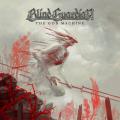
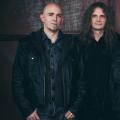
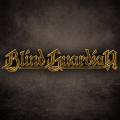
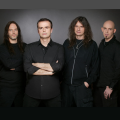
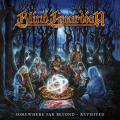
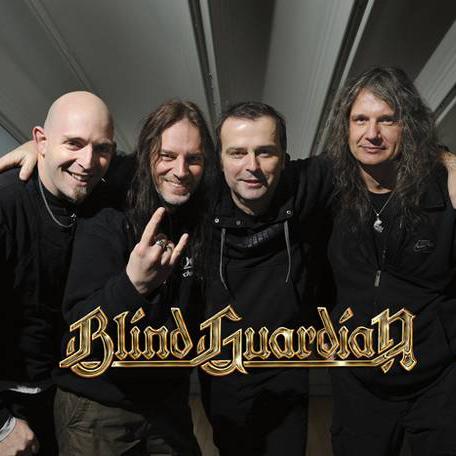
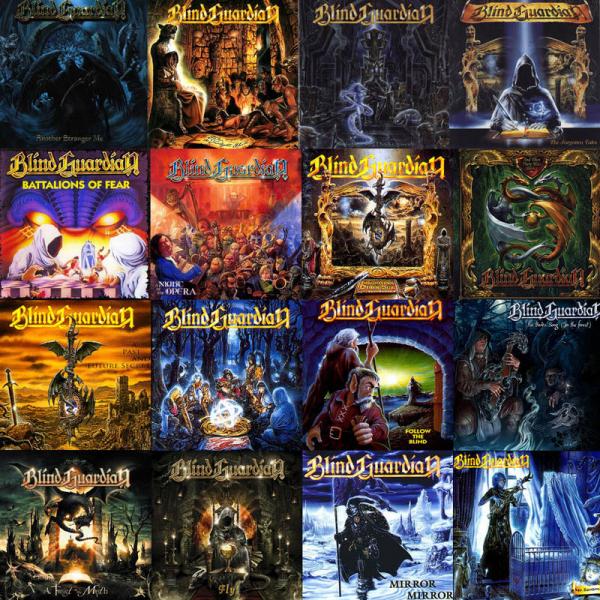



 6
6 3
3
Obrigado.
Thanks
gracias